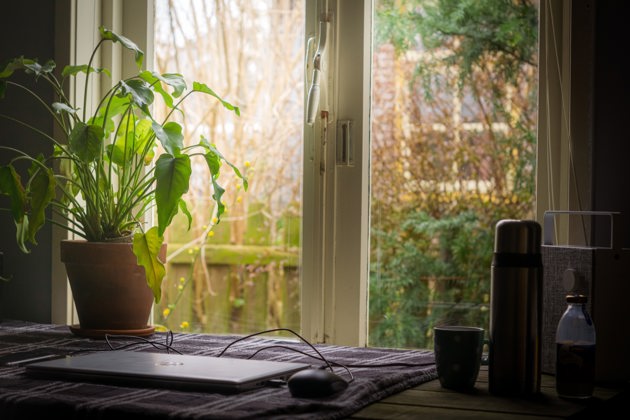
This post is by Dominique Mulhane.
It’s understandable that people are uncertain and anxious about the COVID-19 (Coronavirus) pandemic. Our health and in many cases our livelihood are at risk, and so many of the things that we have taken for granted in the past - the structure and routines of our lives - have been snatched away.
We may no longer have access to our workplaces. We may be working from home, or worse, may have lost our jobs or businesses. The value of investments and superannuation has been sharply declining. People may be isolated from friends and family; forced to cancel travel or entertainment arrangements. Our radio and television broadcasts, social media, newspapers and magazines constantly update us with the growing infection and death tolls, amid ugly images of empty supermarket shelves and shoppers fighting in the aisles as a consequence of unnecessary hoarding of essential items, including medical supplies.
We are living through a time when, as Yeats put it, the centre is not holding. Have we ever been in greater need of steadfast resilience?
As a psychologist, I believe following evidence-based recommendations for cultivating mental resilience can help people cope with this crisis. Resilience is the ability to work through a difficult situation and bounce back from adversity. It is achieved by focusing on your mindset. This involves using your inner strength and adapting to a situation. Resilience won’t make the challenges disappear. And it's important to accept and acknowledge negative emotions rather than trying to push them away. Look at them without judgment and move on. Doing so will allow you to better handle stress, reduce your anxiety and find things to enjoy and look forward to.
There are several key areas to focus on. The first is taking care of your physical health. Ensure that you are nourishing your body with healthy choices, regular movement and enough sleep to provide you with the energy you will need to tackle whatever is thrown at you.
It may be more difficult than usual to fulfill those needs. The ingredients you normally buy for meals may not be available. Try not to stress about that. Instead, think of it as a fun challenge to come up with a new, delicious creation. As for exercise, there are plenty of ways to move your body at home. Put on your favourite music and dance around or check out YouTube for exercise or dance videos. There is no shortage there.
The next step is to focus on your mind. This can include your perspective of the situation. Check in on your thoughts and feelings. Be aware of your breath. Breathing is one way to help regulate your emotions, your concentration and focus, confidence and self-esteem.
If you feel like you are getting stuck in your head and creating more negative emotions, try speaking to a trusted friend or family member to get a different perspective. Another option is to keep a journal or write down some of your unhelpful thoughts and feelings and try to work out what is causing them. Sometimes just seeing the words in front of you can give you a different perspective and greater understanding of yourself.
The last step involves social connection. We have a variety of interpersonal relationships, including family, friends, work, school/university, community, cultural, sporting and other interest groups. It may not be possible to spend time face-to-face with these people if you are in self-isolation or working from home, however it is still important to try to maintain these connections. Try to send regular messages, make phone calls or video chat. You might establish new groups in WeChat or WhatsApp. We’re lucky to have so much technology now to help us stay in touch with those people most important to us. The airlines might have cancelled flights, but with these applications, we can cross oceans in seconds.
In these times it is important to focus on what you can control, not what you are unable to control. We cannot predict the future. We don’t know what the new normal might be. Try to remain in the present. Stay mindful and connected. By establishing structure and predictability wherever possible in your life, you can navigate through these crazy times.
Photo by Sven Brandsma on Unsplash
Tags